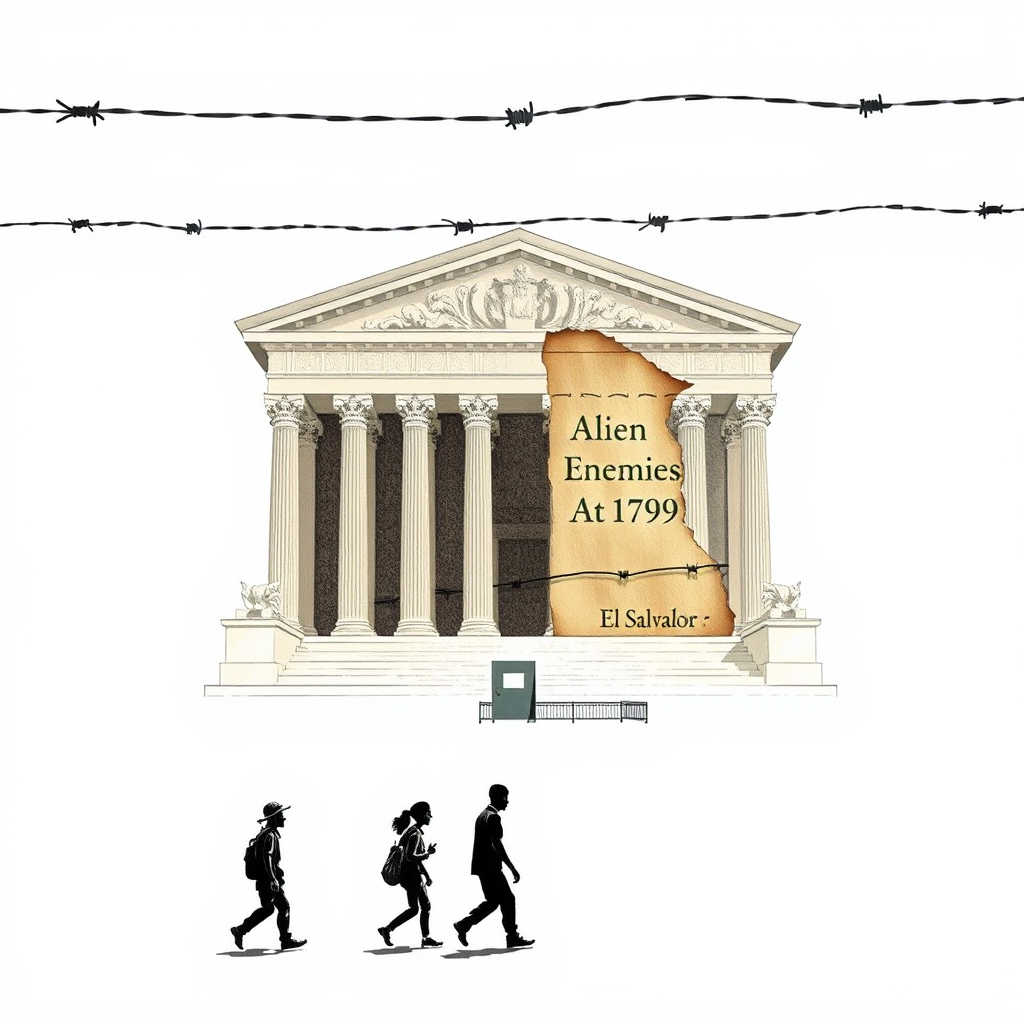Supreme Court Revives Trump's Wartime Deportation Power

The US Supreme Court delivered a split decision Monday, siding with the Trump administration to temporarily lift a block on deportations of Venezuelan migrants under a rarely-used wartime law, while simultaneously affirming the migrants’ right to legal challenge their removal. The 5-4 ruling allows the administration to resume deportations that had been halted by a federal judge, but establishes a crucial requirement for due process.
The case centers on President Trump’s invocation of the 1798 Alien Enemies Act – a law historically employed during times of declared war – to target alleged members of the Venezuelan gang Tren de Aragua. The administration has been deporting these individuals to a maximum-security prison in El Salvador.
Attorneys representing the deported migrants argue their clients were wrongly identified as gang members, lacked criminal records, and were targeted based on superficial characteristics like tattoos. This claim raises serious questions about the fairness and legality of the deportations.
The Supreme Court’s decision wasn’t a complete endorsement of the administration’s actions. While lifting the initial injunction, the justices clarified that those facing deportation under the AEA are entitled to notice and an opportunity to contest their removal – a vital safeguard against arbitrary detention and expulsion.
However, the court primarily lifted the injunction on technical grounds, citing improper venue. The original lawsuit was filed in Washington D.C., while the detainees are held in Texas. This leaves the door open for further legal challenges to be brought in the appropriate jurisdiction.
The ruling highlights a concerning trend: the willingness to employ extraordinary measures, rooted in historical wartime legislation, to address contemporary immigration concerns. While border security is a legitimate government function, it should not come at the expense of fundamental legal rights. The invocation of the Alien Enemies Act, a law designed for genuine national security threats during armed conflict, to target individuals based on alleged gang affiliation – and with limited due process – feels like a significant overreach.
The dissenting justices voiced strong concerns, with Justice Ketanji Brown Jackson warning about the dangers of invoking such a law and Justice Sonia Sotomayor condemning the government’s actions as a threat to the rule of law.
Lee Gelernt of the ACLU, representing the plaintiffs, characterized the court’s affirmation of due process rights as an “important victory,” but acknowledged the ongoing fight to ensure fair treatment for the deported Venezuelans. The Trump administration, predictably, celebrated the ruling as a vindication of its border security policies. The legal battle is far from over, and the implications for immigration policy and due process rights remain significant.